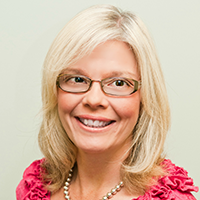Past Coverage of ACR 2015Past Coverage of ACR 2015 Return To RheumReports Home

Along with many of the attendees at this session, you may be wondering what the meaning of cultural humility really is and how it has relevance in the rheumatology setting. Cultural humility for the health professional means having an essence of openness in appreciating each person with dignity and respect.
It is well-known that adherence is greatly influenced by the level of trust a patient has in their health professional and that trust is first established by the patient's understanding that "they know how much you care before they care how much you know." What we first see when a patient enters the office often represents 10% of the whole picture of who they are really are, what their belief system is, and how they see the world. It is wrong to generalize that because a person is of a certain ethnicity, colour or sexual orientation, that they will have certain beliefs. Creating a "safe space" allows a person to be themselves and express their actual fears and concerns when new treatments are offered or when a diagnosis is discussed for the first time.
The most effective health professionals understand that their knowledge set comes from the evidence-based medicine they learn from the outside, but also what they learn from the inside. During a reflective exercise, attendees were asked to close their eyes, yet many still felt they were still "looking" out and not reflecting within themselves. The facilitator then asked attendees to place their hands over their eyes to further block out the outside influences.
When asked how we can be more open to listening, observing and processing who the person is that we are treating, the facilitator suggested that when we reflect on our own beliefs and what creates our cultural uniqueness, it creates an openness to the uniqueness of others.
During ACR 2014, I attended a session on resiliency that focused on the factors that help people find happiness in times of struggle. Body awareness and reflection are sources of resiliency that can be helpful in our personal lives and as I learned in this session, it makes us more accepting and open to the patients we work with.
Share This Report
About the Author

Carolyn Whiskin, BSc. Phm is currently the director of pharmacy programs for the Charlton Centre for Specialized Treatments in Hamilton, Ontario. She also practices pharmacy at Brant Arts Dispensary in Burlington, Ontario and is the pharmacist representative to the Ontario Rheumatology Association’s Model of Care committee.
View Full Bio





